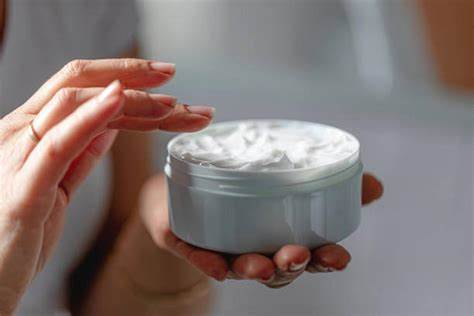When it comes to skincare, finding the right face cream is often considered the most essential step in maintaining healthy, glowing skin. Whether you’re dealing with dry patches, aging signs, or oily skin, an excellent face cream can make a world of difference. But with the sheer number of products available, choosing the best one for your skin can be a daunting task. In this comprehensive guide, we’ll cover everything you need to know about face creams, including what makes a face cream excellent, how to choose the right one, the latest trends, and some frequently asked questions that people search for on Google and YouTube.
What Makes a Face Cream Excellent?
An excellent face cream should do more than just hydrate. Here are a few key attributes that make a face cream truly stand out:
Effective Hydration: A high-quality face cream should provide deep hydration. Skin that is well-moisturized tends to look plumper, healthier, and more youthful. Look for creams that contain humectants like hyaluronic acid, glycerin, or aloe vera, as they help draw moisture into the skin.
Anti-aging Properties: If you’re looking for an anti-aging face cream, it should contain ingredients like retinol, peptides, or antioxidants like vitamin C. These ingredients stimulate collagen production and fight free radicals, which are responsible for wrinkles and skin aging.
Skin Barrier Repair: A good face cream will help repair the skin’s natural barrier, which protects it from pollutants, bacteria, and harmful chemicals. Look for creams with ceramides or fatty acids, as these are essential in strengthening the skin’s protective barrier.
Non-Comedogenic: For people with oily or acne-prone skin, choosing a non-comedogenic face cream is essential. These formulations are designed to prevent clogged pores, which can lead to breakouts.
SPF Protection: A face cream with SPF is a game-changer, especially during the daytime. Broad-spectrum sunscreen protects the skin from harmful UVA and UVB rays, which cause premature aging, pigmentation, and even skin cancer. Many face creams now combine skincare with sun protection.
Suitable for Your Skin Type: The best face creams are those formulated specifically for your skin type. Whether your skin is oily, dry, sensitive, or combination, selecting the right ingredients will give you the best results.
How to Choose the Best Face Cream for Your Skin
Selecting the right face cream depends on your specific skin care needs. Here’s how to make sure you’re choosing a product that will work for you and Consider Your Skin Type:
Oily Skin: Opt for lightweight, oil-free face creams or gel-based formulas. Look for ingredients like salicylic acid to control excess oil production and prevent acne.
Dry Skin: Choose a richer, thicker cream containing hydrating ingredients like shea butter, hyaluronic acid, or squalane. These ingredients lock in moisture and help maintain the skin’s elasticity.
Sensitive Skin: Look for creams that are fragrance-free and hypoallergenic. Ingredients like chamomile, calendula, or colloidal oatmeal are soothing and help to calm irritation.
Combination Skin: Pick a balanced face cream that offers hydration without being too greasy. Lightweight formulas with ingredients like glycerin or niacinamide are a good choice.
Look for Key Ingredients
Hyaluronic Acid: A powerful humectant that attracts moisture to the skin, leaving it plump and hydrated.
Retinol: A form of vitamin A that promotes cell turnover and helps reduce fine lines and wrinkles.
Peptides: These help to boost collagen production and repair the skin’s barrier.
Vitamin C: Known for brightening the skin, fighting pigmentation, and providing antioxidant protection.
Niacinamide: This ingredient helps with inflammation, pigmentation, and improving the overall texture of the skin.
Avoid Harmful Ingredients: Some face creams contain potentially harmful chemicals, such as parabens, sulfates, and artificial fragrances, which can irritate sensitive skin. Always check the label and look for clean, non-toxic formulations.
The Latest Trends in Face Creams
In recent years, the face cream market has seen several exciting innovations. Here are the latest trends that are taking the skincare world by storm:
Clean Beauty Products: Consumers are increasingly turning to face creams that are free from harmful chemicals and are made with natural, sustainably sourced ingredients. Clean beauty focuses on transparency, ethical sourcing, and cruelty-free practices.
Multi-Functional Face Creams: Face creams that serve more than one purpose are becoming very popular. These include moisturizers with added SPF, anti-aging benefits, or even brightening effects. For example, a face cream that hydrates, firms, and protects the skin from sun damage offers a quick and effective skincare solution.
Personalized Skin Care: With advancements in technology, some brands now offer personalized face creams. These products are tailored to your skin’s unique needs based on factors like age, skin type, climate, and lifestyle. Personalized skincare is a rapidly growing trend that aims to create highly targeted formulations.
Probiotic Face Creams: Probiotics are becoming an essential part of skincare, and face creams containing probiotics or prebiotics aim to restore balance to the skin’s microbiome. This can help improve skin health, reduce inflammation, and support the skin’s natural defenses.
CBD-Infused Face Creams: Cannabidiol (CBD) has been trending in skincare products due to its anti-inflammatory and antioxidant properties. CBD-infused face creams are popular for calming sensitive skin, reducing redness, and providing overall hydration.
FAQs
How often should I apply face cream?
Face cream should generally be applied twice a day – once in the morning and once at night. In the morning, choose a face cream with SPF for sun protection, and at night, apply a more hydrating cream or one with anti-aging ingredients like retinol. Consistent use will yield the best results.
Can I use face cream and sunscreen together?
Yes, it is essential to use both a face cream and sunscreen in your daily skincare routine. Sunscreen helps protect your skin from harmful UV rays that can cause premature aging, while face cream provides hydration and other skin benefits. Look for face creams with built-in SPF for added convenience.
What’s the difference between face cream and moisturizer?
While both moisturize the skin, face creams are generally thicker and more nourishing, making them ideal for dry skin or overnight hydration. Moisturizers, on the other hand, can be lighter and used for day-to-day hydration. The terms are often used interchangeably, but face creams tend to offer more intensive care.
How can I make my face cream more effective?
To make your face cream more effective, apply it after cleansing and toning while your skin is still damp. This helps lock in moisture. Additionally, use a serum before applying the cream for extra nourishment. Always use the right amount—too little won’t be effective, and too much may cause irritation.
In Summary
Choosing the right face cream can make a significant impact on your skincare routine. Whether you’re looking to hydrate, prevent signs of aging, or treat specific skin concerns, there is a face cream out there for every need. By understanding your skin type and the key ingredients to look for, you can make informed choices that will help you achieve a healthy, glowing complexion. Always remember to tailor your skincare routine to your skin’s needs and be patient, as results often take time.
To read more, Click Here .








